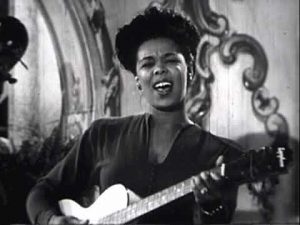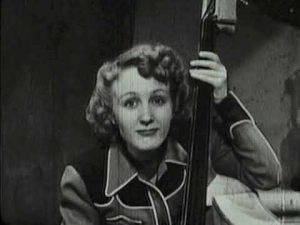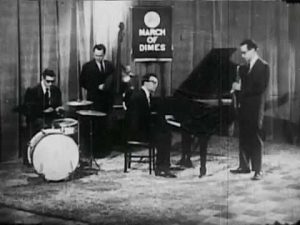In the mid-to-late 1940s, and into the early 1950s, changing tastes and the harsh economic realities of leading a big band resulted in almost all of the best known orchestras disbanding at one time or another. Some disbanded for a short period of time, others permanently. Of the great bands from the 1930s, only Duke Ellington continued working continuously throughout this period.
During the spring of 1951 Count Basie found himself in the same position as many others, but instead of quitting the business completely, Basie decided to reduce the size of his band. He brought in three modernists for the front line, Clark Terry, Buddy DeFranco and Wardell Gray. With the band business struggling in general, Basie showed considerable courage by integrating the band with white clarinetist DeFranco. His rhythm section remained rock solid, with Swing masters Freddie Green, Jimmy Lewis and Gus Johnson supporting Basie and the band.
In April 1951 Basie was invited to make a series of Snader Telescirptions for distribution in the growing television market. Needing a vocalist for two of the songs, Basie called upon Helen Humes. One of the finest singers in all jazz, Humes had sung with Basie in 1937, then moved on to a solo career in jazz and blues that would last until her death in 1981.
In the late 1970s Helen was booked at Doug Weston’s Troubadour in West Hollywood. The club rarely booked jazz artists, and there were only four of us in the audience that night, watching Helen perform with Tommy Flannigan, Ray Brown and a drummer who I cannot recall. Helen took requests, and she sat with us between sets. When I mentioned the two Snader Telescriptions that she made with Basie, she smiled, then shrugged her shoulders and said something like, “It was just a day’s pay for a day’s work.”
Count Basie’s light touch, a full tenor sax chorus by Wardell Gray, and the vocal by Helen Humes makes this a very special performance, all from just “a day’s work.”



